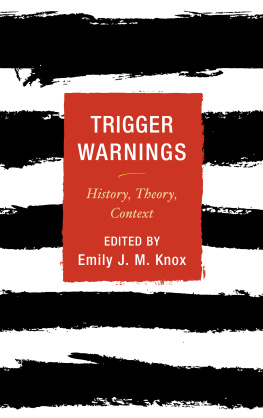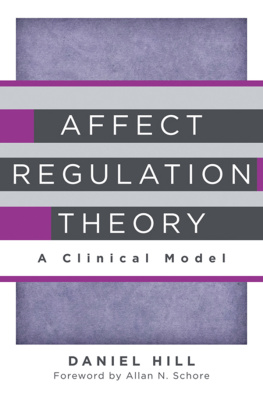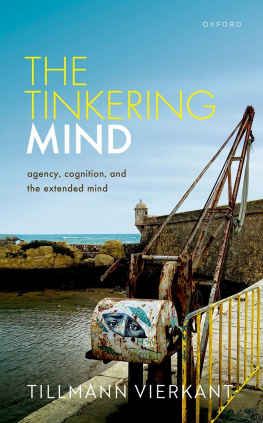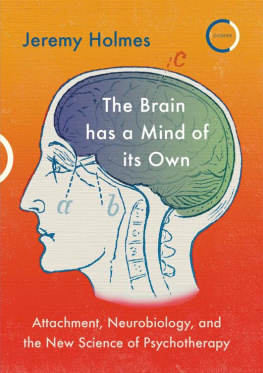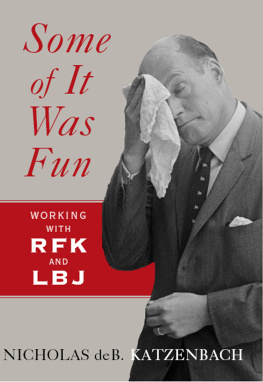The Norton Series on Interpersonal Neurobiology
Allan N. Schore, PhD, Series Editor
Daniel J. Siegel, MD, Founding Editor
The field of mental health is in a tremendously exciting period of growth and conceptual reorganization. Independent findings from a variety of scientific endeavors are converging in an interdisciplinary view of the mind and mental well-being. An interpersonal neurobiology of human development enables us to understand that the structure and function of the mind and brain are shaped by experiences, especially those involving emotional relationships.
The Norton Series on Interpersonal Neurobiology will provide cutting-edge, multidisciplinary views that further our understanding of the complex neurobiology of the human mind. By drawing on a wide range of traditionally independent fields of researchsuch as neurobiology, genetics, memory, attachment, complex systems, anthropology, and evolutionary psychologythese texts will offer mental health professionals a review and synthesis of scientific findings often inaccessible to clinicians. These books aim to advance our understanding of human experience by finding the unity of knowledge, or consilience, that emerges with the translation of findings from numerous domains of study into a common language and conceptual framework. The series will integrate the best of modern science with the healing art of psychotherapy.
Self-Agency in Psychotherapy
Attachment, Autonomy, and Intimacy
Jean Knox,
PhD, MBBS, MRC Psych.

W. W. Norton & Company
New York London
Portions of Chapters 3 and 4 reprinted from: Knox, J. (2009). Mirror neurons and embodied simulation in the development of self-agency. Journal of Analytical Psychology 54 , 3: 307324. Reprinted by permission of Wiley-Blackwell.
A modified version of this paper appears as Chapter 5: Knox, J. (2009). When words do not mean what they say: Self-agency and the coercive use of language. Journal of Analytical Psychology 54 , 1: 25-41. Reprinted by permission of Wiley-Blackwell.
A modified version of this paper appears as Chapter 6: Knox, J. (2007). The fear of love: The denial of self in relationship. Journal of Analytical Psychology 52 , 5: 543564.
A modified version of this paper appears as Chapter 8: Knox, J. (2009). The Analytic Relationship: Integrating Jungian, attachment theory and developmental perspectives. British Journal of Psychotherapy 25 , 1: 523. Reprinted by permission of Wiley-Blackwell.
Case material described in Chapter 8: Courtesy of Warren Colman.
Copyright 2011 by Jean Knox
All rights reserved
For information about permission to reproduce selections from this book, write to Permissions, W. W. Norton & Company, Inc., 500 Fifth Avenue, New York, NY 10110
Library of Congress Cataloging-in-Publication Data
Knox, Jean, 1948
Self-agency in psychotherapy: attachment, autonomy, and intimacy / Jean Knox.
p. cm.
Includes bibliographical references.
ISBN: 978-0-393-70689-5
1. Self. 2. Attachment behavior. 3. Autonomy (Psychology)
4. Intimacy (Psychology) 5. Psychotherapy. I. Title.
BF697.K635 2011
155.2dc22
2010031963
W. W. Norton & Company, Inc., 500 Fifth Avenue, New York, N.Y. 10110
www.wwnorton.com
W. W. Norton & Company Ltd., Castle House, 75/76 Wells Street, London W1T 3QT
Contents
PART I
The Relational, Developmental, and Neurobiological Foundations of Self-Agency
PART II
Clinical Aspects of Self-Agency
Acknowledgments
I AM GRATEFUL TO A NUMBER OF PEOPLE who have helped me at crucial stages in writing this book. The invitation from Allan Schore and Deborah Malmud to write a book on self-agency enabled me to see that it would fill a significant gap in the psychotherapy literaturethat it is a book whose time has come. My many discussions with colleagues who are researching in related fields have been invaluable in enabling me to widen the scope of my study and to include the relevant articles from other disciplines. I would particularly like to thank James Astor, Joe Cambray, Linda Carter, Warren Colman, Sue Gerhardt, George Hogenson, Georgia Lepper, John Merchant, and Jo Tucker, who have all contributed greatly to my understanding of the theoretical issues and their clinical applications that I explore in this book. Pramila Bennett has been a very great help in preparing the book for publication. All of these have also offered constant friendship and support, for which I am always grateful. My thanks to Vani Kannan and the Norton team.
I am also grateful to Beatrice Beebe, Peter Fonagy, Raya Jones, Jaak Panksepp, Bruce Reis, Oliver Turnbull, and Vittorio Gallese for their helpful comments on some of the ideas explored in this book or on draft chapters, or for helping me to locate relevant articles. I would also like to thank Nadia Fina, Brett Kahr, Jane Ryan, Steven Flower, Massimo Giannoni, Andrew Samuels, and Caterina Vezzoli for offering me opportunities to present my ideas to clinical colleagues in seminars and conferences, occasions that provide useful feedback and opportunities to revise and refine my ideas. I am also grateful to my patients who have given their permission for the case illustrations in the book.
I am also very grateful to Helen Campbell-Hart for permission to use her print Cityscape for the front cover and to Susan Moxley for her help in preparing it for publication. And my thanks to John, Olivia, and Gareth for their encouragement and support.
Earlier versions of Chapter 5, When Words Do Not Mean What They Say: Self-Agency and the Coercive Use of Language and Chapter 6, The Fear of Love: The Loss of Agency in Relationship were published in the Journal of Analytical Psychology . An earlier version of Chapter 8, The Analytic Relationship: Integrating Jungian, Attachment Theory, and Developmental Perspectives, was published in the British Journal of Psychotherapy . I am grateful to Wiley-Blackwell for permission to use these articles.
Self-Agency in Psychotherapy
Introduction:
What Does Self-Agency Mean?
THE SELF IS APPARENTLY A SIMPLE CONCEPT . Each of us has a sense of self, encompassing all the thoughts, beliefs, desires, expectations, and fantasies that reflect our own sense of a unique identity. This was the dominant Enlightenment view of a stable, coherent, knowable self, a self that is conscious, rational, and autonomous (Reis, 2005, p. 86). But this view began to crumble on two fronts. One, of course, was Freuds great revelation that there were more thoughts on an individuals mind than he or she was aware of, that the ego is not master in its own house (p. 86).
But although he has not entered public folklore in the same way, William James (1890/1983), in his Principles of Psychology , also began to disassemble this folk psychology sense of a unified identity. He made a distinction between two aspects of self, the self as subject, or the I, and the self as object, or the Me. James eventually concluded that there is no subject of experiences, no metaphysical I, apart from the physical being who does the thinking. Rather, he concluded that the passing thoughtis itself the thinker (p. 401). The distinction James drew between the I and the Me contributes to the distinction I frequently make in this book between the sense of self (me-ness) and the sense of self-agency (I-ness), but with an important difference, namely that the concept of self-agency can be thought of as a way of reframing the Jamesian I. In this view, the bodys physical experience of agency forms the core and foundation for the emotional and psychological experience of agency (I-ness), an example of Mark Johnsons (1987) view that our bodily experience directly creates symbolic meaning and conceptual thought.



